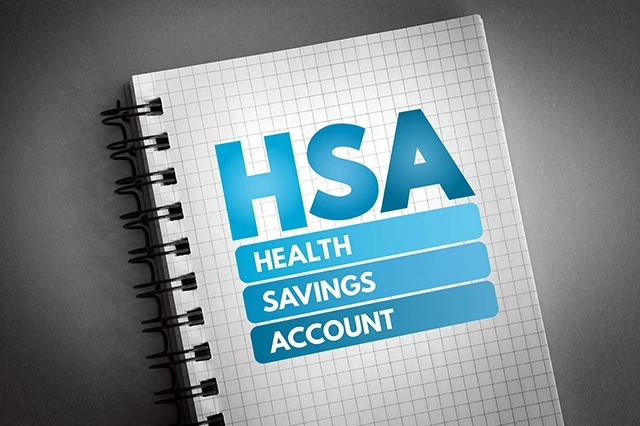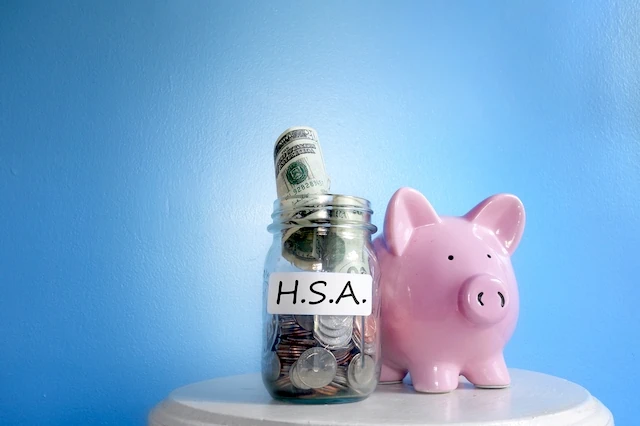Health savings accounts (HSAs) are rocketing in popularity, and it’s easy to see why.
An HSA allows you to save for a wide range of health care expenses on a tax-advantaged basis. Indeed, HSAs have what’s referred to as a triple tax advantage. You contribute pre-tax dollars (or make tax-deductible contributions with post-tax dollars). The money can grow tax-free while in the account. And you get tax-free withdrawals if you use the money for eligible medical costs.
Better still? You can even use HSAs as an extra retirement savings account.
No wonder, then, that health savings accounts have grown like a weed. The Consumer Financial Protection Bureau (CFPB) says that around 36 million HSAs were reported in 2023—up 205% from 11.8 million in 2013. And those HSAs collectively hold $116 billion in assets, which is up roughly 500% from a decade ago!
The only problem with health savings accounts is that some of us don’t use them to their fullest potential. So today, I’m going to introduce you to several common HSA money mistakes—and show you how to avoid making them.
Who Is Eligible for a Health Savings Account?

Before we dive into common mistakes in HSAs, let’s discuss who is eligible to participate in these accounts.
To qualify for a health savings account (and to qualify to make an HSA contribution), you have to meet the following requirements:
- Be covered under an eligible high-deductible health plan as of the first of the month
- For 2025, this means an individual plan with a deductible of at least $1,650 or a family plan with a deductible of at least $3,300.
- Not all high-deductible plans are HSA-qualified.
- Have no other health coverage (there are exceptions for insurance that provides certain specific benefits)
- Not be enrolled in Medicare
- Not be claimed as a dependent on someone else’s tax return
If you’re unsure about whether you’re in a qualifying plan, check with your health care provider.
What Are Qualified Medical Expenses?

The HSA’s aforementioned tax benefits come with conditions, of course.
You can withdraw HSA funds without any tax consequences as long as you spend those funds on qualified medical expenses. Fortunately, there are many, many qualified health expenses. You can find a full list in IRS Publication 502, but here are just a few to give you an idea of the range:
- Hospital services
- Routine dental care
- Fertility treatments
- Laser eye surgery
- Hearing aids
- Psychiatric care
- Over-the-counter medications (with or without a prescription)
- Some health insurance premiums
However, if you withdraw funds for non-qualified health expenses at any age, you will be responsible for paying income taxes on that money. And if you do so before you reach age 65, you’ll also have to pay a 20% tax penalty.
Avoid These HSA Mistakes

A health savings account may have even more benefits than you realize. Let’s talk about what you should and shouldn’t do with an HSA to fully utilize your account.
1. Not Fully Funding Your Health Savings Account

Like with most tax-advantaged accounts, there are annual limits to how much a person can contribute to an HSA. For calendar year 2025 …
- The limit for an individual with self-only coverage is $4,300.
- The limit for an individual with family coverage is $8,550.
- Anyone age 55 and older can contribute an additional $1,000 each year as a “catch-up contribution.”
HSA contributions for a calendar year can be made until the federal tax deadline of the following year. So, for calendar 2025, contributions can be made until April 15, 2026.
If your financial situation allows it, it’s highly recommended to max out your HSA every year you’re eligible to do so. Because of their numerous tax benefits, health savings accounts are one of the best ways to squeeze the most out of your dollars.
Just remember: You can no longer contribute to an HSA once you become ineligible based on the criteria listed earlier.
Related: Health Care Costs in Retirement [Amounts & Types to Expect]
2. Making Excess Health Savings Account Contributions

On the flip side, limits are limits, and you don’t want your HSA contributions to exceed those limits.
Maybe you miscalculated your automatic monthly transfers. Or maybe you meant to send funds to an IRA you held at the same brokerage firm. Whatever the reason, if you make excess HSA contributions over the annual limit, those contributions not only are subject to income tax, but you might face a 6% excise tax on those contributions—and both taxes apply to every year in which that money remains in your account.
I say “might” because you might have an opportunity to correct the issue. If you ever mistakenly surpass the annual contribution limit, you can avoid these taxes in one of two ways:
Withdrawing your excess contributions
However, says, the IRS, you can only avoid the taxes by withdrawing those excess contributions so long as …
- “You withdraw the excess contributions by the due date, including extensions, of your tax return for the year the contributions were made.”
- “You withdraw any income earned on the withdrawn contributions and include the earnings in “Other income” on your tax return for the year you withdraw the contributions and earnings.
Deducting excess contributions in a later year
Alternatively, you can deduct the excess contribution in the next year, and thus never have to pay income and excise taxes on it again. However, for excess contributions, in a given year, you can only deduct the lesser of two amounts:
- Your HSA contribution limit for the year minus any contributions to your HSA for the year.
- The total excess contributions in your HSA at the beginning of the year.
To illustrate, let’s say you’re single. In 2025, you have $500 in excess contributions. In 2026, the limit is $4,400. If you contribute up to the 2026 limit, then you can’t deduct anything, because your HSA contribution limit ($4,400) minus how much you contributed ($4,400) is zero. If you contribute, say, $4,150, you can deduct $250 of those extra contributions ($4,400 – $4,150 = $250), but not all of it. In other words, to deduct the full $500 and wipe the slate clean, you would have to contribute at least $500 less than the limit in 2026.
Related: Don’t Overpay for Medicare: How to Avoid the Late Enrollment Penalty
3. Not Investing Your Health Savings Account Funds

Not investing HSA funds isn’t just one of the most common HSA flubs—the vast majority of people make this mistake! According to an analysis from the Employee Benefit Research Institute (EBRI), only 13% of account holders invested their HSAs in assets besides cash in 2022.
OK, to be fair, this isn’t automatically a mistake under many circumstances. If you plan on using your HSA for health care expenditures every year, and you know you’ll need every cent of that money, you might not want to risk any of it by investing it in the stock market, bonds, and anything else that carries at least some risk.
But if you don’t plan on regularly draining your HSA each year, you’re missing out on the opportunity to grow your funds and earn tax-free returns. In turn, those larger funds could be used for future health expenses or, much farther down the road, even retirement expenses. (Just remember that HSAs do lose one of their tax benefits—tax-free withdrawals—if you spend the money for non-health care purposes, even once you reach retirement age. In that way, the HSA becomes more like a traditional 401(k) or IRA.)
You can always invest conservatively—for instance, many bond funds can provide relatively low risk (compared to the stock market) for a more modest return. Something is better than nothing!
You don’t need to invest 100% of your HSA, either. You could commit to keeping in cash, say, a set dollar amount for medical emergencies, or a set dollar amount that covers a certain number of years’ worth of routine medical expenses, but invest any dollars over your chosen threshold.
Related: How Much to Save for Retirement by Age Group [Get on Track]
4. Withdrawing Money for Non-Medical Expenses Early

As mentioned above, you can withdraw money without any tax consequences as long as that money is spent on eligible medical expenses.
If not, the consequences depend on your age.
- If you’re 65 or older, you can spend HSA funds for any reason, but if you do so for non-qualified expenses, it will be considered taxable income (and thus you’ll have to pay ordinary income taxes on it).
- If you’re younger than 65, and you withdraw HSA funds for non-qualified expenses, you’ll be responsible not only for taxes, but a 20% tax penalty.
There’s a bit of good news here, though. If you mistakenly withdraw funds for medical expenses you think are eligible at the time, but later realize they aren’t, you can remedy this error. As long as you return the money before the federal tax deadline of the following year (so if you withdraw errantly in 2025, you must return the money by April 15, 2026), you will avoid any tax consequences.
Related: When Should You Take Social Security?
5. Unnecessarily Spending Health Savings Account Funds

Your HSA funds aren’t “use it or lose it”—they roll over from one year to the next indefinitely.
Some people use HSA funds right away to pay for qualified medical expenses. That’s OK. If you need the money at the time, by all means, use it.
But if you have plenty of cash to pay for these costs out of pocket, you might be better off in the long run treating your HSA like an auxiliary retirement account.
Again, HSA funds can be invested and grow over time. And not only can you withdraw from your HSA without incurring a penalty once you hit age 65, you can avoid any tax consequences outright—and lock in that triple tax advantage—by spending those funds on health care costs in retirement, such as Medicare premiums and long-term care expenses.
Related: How Much Should I Contribute to My 401(k)?
6. Not Knowing About Health Savings Account Retroactive Reimbursements

Let’s say you’ve suddenly fallen on tough times and need money. Perhaps you’re falling behind on rent or utilities.
If in previous years, when your finances were in a better place, you might have paid for several qualified medical expenses from your checking account instead of your HSA. Well, you would be able to reimburse yourself for those past expenses.
You see, there is no deadline for reimbursing yourself from your HSA.
Just make sure to keep your receipts. It’s a good practice to keep no matter what, but it’s especially important to be able to provide proof if you ever think you’ll need to reimburse yourself from prior years.
Related: HSA Rollover: How to Transfer HSA Funds to a New Provider
Are Health Savings Accounts the Same as Flexible Spending Accounts?
In a word: No.
A health savings account (HSA) and a flexible spending account (FSA) aren’t the same thing. Both types of accounts are designed to hold money earmarked for qualified medical expenses. But they have several differences. Among the most important:
- Eligibility. HSAs require a high-deductible health plan to participate. FSAs do not.
- Timeframe. HSA funds roll over from year to year indefinitely. FSA money is usually “use it or lose it” from one year to the next, though some allow a limited amount of carryover (up to $660 in 2025).
- Ownership. All FSAs are employer-sponsored accounts, whereas HSAs are owned by an individual. Going back to “use it or lose it,” if you are fired or quit your job, you forfeit your FSA money. But you keep your HSA money.
- Here’s a beneficial FSA loophole: When you have an FSA, you typically commit to an annual contribution amount (let’s say $3,600) then contribute fractions of that amount every paycheck (let’s say $150 twice a month). However, the “uniform coverage rule” requires that the max amount of contribution be available for claims incurred during the period of coverage. So, let’s say you needed surgery at the start of March—even though you only contributed $600 to that point, you could spend all $3,600 on the surgery. In other words, if you plan on quitting or are worried about being fired, you can spend your full annual FSA contribution amount, and if you do leave your employer, you won’t have to pay back the difference.
- Ability to invest. HSA funds can earn interest or be invested, but FSA money cannot.
Also, you typically can’t have an HSA and an FSA at the same time. But there are two kinds of health FSAs that are compatible with an HSA. One is a limited-purpose FSA, which usually covers eligible vision and dental expenses. The other is a post-deductible FSA, which covers eligible medical costs incurred after the minimum allowable HDHP deductible is met.







![Should You Max Out Your 401(k) Each Year? [Yes...and No] 23 should you max out your 401k each year or invest elsewhere](https://youngandtheinvested.com/wp-content/uploads/should-you-max-out-your-401k-each-year-or-invest-elsewhere-600x403.webp)

